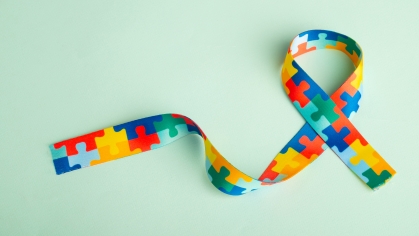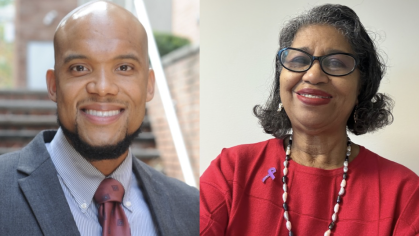We enter this month of December by taking a look back at a conversation our IIDEA Committee recently had with Zan Haggerty, acting Assistant Director of the CAPS Next Step Program at Rutgers University and Rutgers SSW Doctoral Student. Zan shares what Transgender Day of Remembrance means to them and how social work students and practitioners can commemorate this month.
Tell us a bit about your journey to social work.
After my undergraduate degree, I found myself working internationally and in DC doing grassroots community organizing for a few years. I felt like there was something missing in my work, and I wanted to connect more with my community and try to make an impact beyond community organizing and education. I decided to switch gears and return to New Jersey and begin the MSW program here at Rutgers. I fell in love with clinical work and the power of connecting with people and helping them find their path to healing. It is the ultimate privilege to sit with clients who feel so deeply misunderstood and work to truly see and understand them. I was naturally drawn to work predominately with the Queer and Trans community as that is my community. In my work, I endeavor to provide corrective emotional experiences to our community who often mistreated by systems and misunderstood or discriminated against by broader society. Most recently, I work with emerging adults who are struggling with thoughts of suicide and navigating the impact of messages from society that tell them they should not exist.
Why is the significance of Transgender Day of Remembrance for you?
Transgender Day of Remembrance is significant for many reasons. There is a longstanding history of violence against the trans community and specifically against trans women of color. Every year we have events and services and vigils to mourn the losses of our trans and gender diverse siblings, and yet every year, society continues to enact violence against our community. In many ways the day of remembrance is an annual reminder that cisgender people, allies, and systems are not supporting us enough. The persistent anti-trans legislation—rooted in absolutely zero evidence or science, debates about our bodily autonomy, or erasure of our people and experiences. We hear this message 365 days a year and then are given one week for awareness. It is a time we come together to be in community and hold space for each other and hope that others will one day see that our existence is not a threat, but an offering of beauty, love, compassion, and vibrancy.
How can the social work community recognize and commemorate Transgender Day of Remembrance?
On the day itself, attend our vigils, read the names of our trans siblings who have been killed, and raise awareness for our community. We need social workers to remember us during the other 364 days of the year so that there are fewer trans people murdered. We need allyship so we are addressed by our chosen names and properly gendered. We need social workers to create policies of inclusion, interrupt acts of transphobia, and learn how to protect us. We need social workers to educate themselves so they can recognize and interrupt times when we are harassed for merely existing in public while defying cis and binary gender norms. The beauty of social work as a profession is that we have a place in so many organizations, systems, and levels of society. The power our field has to create communities of inclusion is incredibly significant. Through social work advocacy, we can enact better policies within school systems so our trans kids can become trans adults. We can advocate for insurance to cover gender affirming care and for providers to increase their knowledge and competence in offering gender affirming care.
The gender binary has its roots in White Supremacy and colonization, two of the most violent and harmful ideologies on the planet. Social workers must recognize when and how we are complicit in those systems and the impact it has on the trans community and in particular our BIPOC trans people. Our lives are truly on the line, so we need social workers to advocate and vote for policies of inclusion, so we have the right to full bodily autonomy and access to gender affirming care as defined by us. Learn and keep up with our community’s language and unlearn your own gender biases. The research on trans and gender diverse people highlights how using our names and pronouns has a direct correlation to decreasing suicidality. The small act of properly address us is a life-saving act for us. We need social work as a profession to contribute to this life saving work and to stop ignoring the presence and need of our community. Erasure and silence still a form of discrimination. If social workers are truly following the code of ethics and upholding our professional responsibilities, we will come together for gender liberation and support gender affirming care across social, medical, and legal domains.



